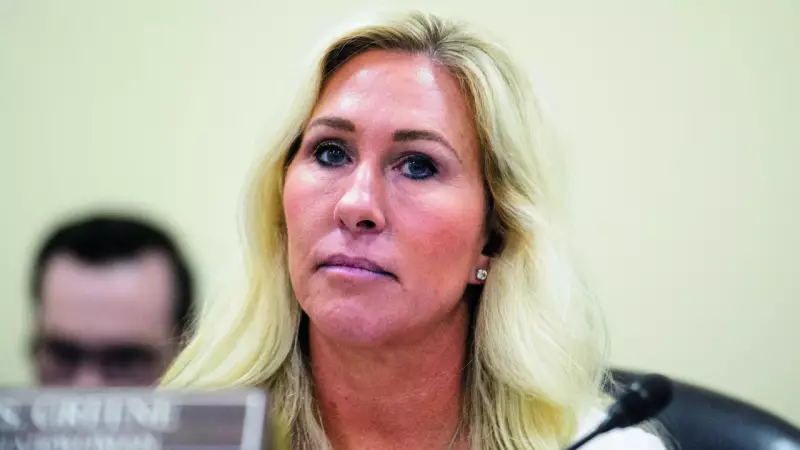
In a move that could have profound implications for thousands of Indian professionals, rebellious Republican lawmaker Marjorie Taylor Greene announced on Thursday her plan to introduce legislation that would aggressively phase out the United States' H-1B visa program. Tapping into the MAGA base's dissatisfaction with the job market, Greene branded the popular visa route a "corrupt" tool for "mass replacement" of American workers.
The Proposed Legislation and Its Key Provisions
Greene unveiled her proposal in a viral post on the social media platform X, which was viewed nearly 2 million times. The bill takes direct aim at Big Tech, AI firms, hospitals, and other industries she accuses of abusing the system to undercut U.S. talent with cheaper foreign labor. Given that Indian nationals receive around 70 percent of all H-1B visas, the Indian tech community would be disproportionately affected.
The core of Greene's proposal is the complete elimination of the H-1B program. This would strip the pathway to citizenship for current visa holders and force them to return to their home countries upon the expiration of their visas. A narrow exemption would allow for 10,000 annual visas for medical professionals like doctors and nurses, a critical concession given the ongoing healthcare shortages in the U.S. However, even this cap would be phased out over a decade to foster a "domestic pipeline" of American physicians.
Further tightening the screws, the measure would also bar non-citizen medical students from Medicare-funded residencies. Greene's office cited last year's imbalance where over 9,000 U.S. medical graduates went unmatched for residencies while 5,000 foreign-born doctors secured spots.
Political Support and Opposition
A staunch "America First" proponent, Greene argues that the H-1B program, originally intended for temporary, high-skill gaps, has devolved into a decades-long scam. She alleges it displaces innovative Americans in technology, engineering, and manufacturing, though this broad claim lacks a comprehensive factual basis beyond isolated cases of fraud.
"Big Tech, AI giants, hospitals, and industries across the board have abused the H-1B system to cut out our own people," Greene declared in a video statement. She emphasized her faith in U.S. ingenuity, stating, "Americans are the most talented people in the world... If we want the next generation to have the American Dream, we must stop replacing them and start investing in them."
Support for Greene's nativist fervor is coalescing among MAGA hardliners. Notably, far-right activist Laura Loomer and former Trump strategist Steve Bannon have echoed the call to end the program, with Bannon demanding it be "zeroed-out." In a significant pivot, Florida Congressman Byron Donald, previously mocked by the MAGA base as "H1Byron," told a conservative host this week that he would "love to see the program go away completely."
However, this narrative is challenged by several studies and surveys that point to shortcomings in the U.S. education system and a chronic shortage of American workers in specialty STEM professions.
An Uncertain Future for the Bill and US Immigration Policy
Despite the vocal support, the chances of Greene's proposal succeeding are considered slim. Critics label her a "stunt legislator" who thrives on headlines, pointing to her track record of 70 dud bills in the House that failed to become law.
The Trump administration appears to be walking a tightrope on the issue. President Trump himself recently seemed to defend the program, insisting the U.S. lacks "certain talents" for critical tech and defense roles. After a backlash from the MAGA base, his surrogates attempted to finesse the issue, suggesting Trump wants foreign workers to train Americans and then return home. This conflicting stance highlights the political sensitivity of the H-1B program.
While Greene's bill is a long shot, it signals a growing protectionist sentiment within a powerful faction of the Republican party. For India, which sends the largest contingent of skilled professionals to the U.S. on these visas, the political debate in Washington demands close attention, as its outcome could reshape the landscape of global talent mobility.





